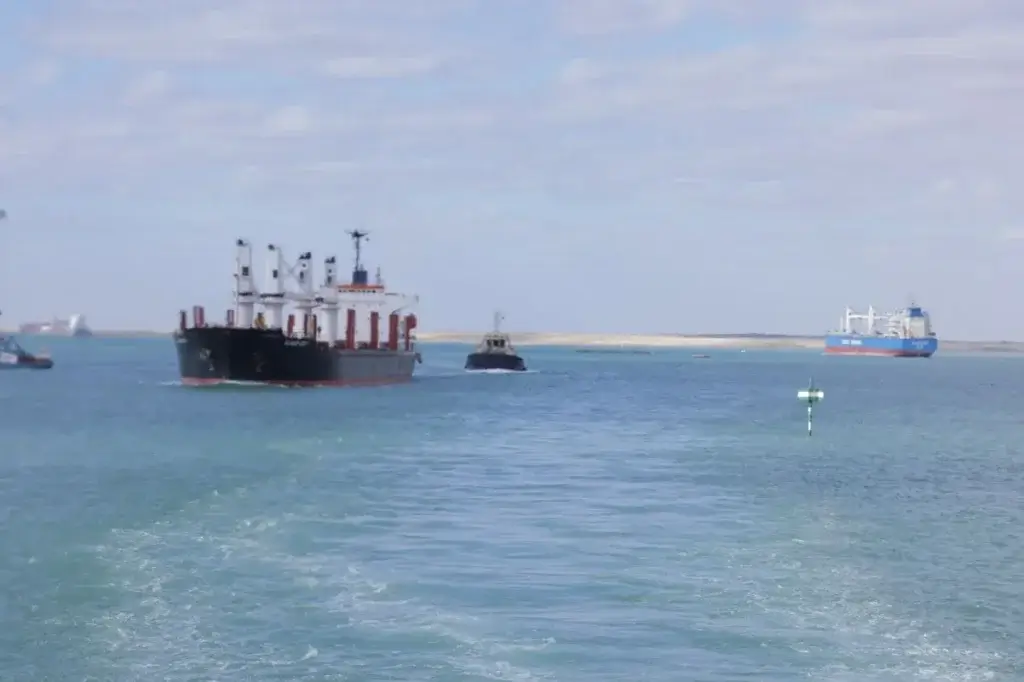Donald Trump’s inauguration speech as the 47th President of the United States has raised significant concerns among stakeholders in the global shipping and trade sectors. Key remarks on tariffs, the Panama Canal, and broader geopolitical issues have been scrutinized for their potential impact on global supply chains.
Trump’s statements on trade and tariffs
During his speech, Trump announced plans to overhaul the U.S. trade system, emphasising protectionist policies aimed at benefiting American workers and families.
“Instead of taxing our citizens to enrich other countries, we will tariff and tax foreign countries to enrich our citizens,” he stated.
To implement this, Trump declared the establishment of the External Revenue Service to collect tariffs, duties, and revenues, projecting “massive amounts of money pouring into our Treasury, coming from foreign sources.”
While no immediate executive orders on tariffs were signed, Trump hinted at a 25% tariff on imports from Mexico and Canada, stating,
“We are thinking in terms of 25% tariffs on Mexico and Canada. I think we will do it February 1st.”
In his latest LinkedIn post, shipping expert Lars Jensen highlighted inconsistencies in Trump’s rhetoric, noting that his description of tariffs is “factually wrong.”
“Such an approach will be clearly inflationary and go counter to what Trump also said in the inauguration speech: ‘I will direct all members of my cabinet to marshal the vast powers at their disposal to defeat what was record inflation and rapidly bring down costs and prices,” Jensen explained.
Jensen’s concerns echo those of other economic experts who warn that imposing high tariffs could exacerbate inflation, contradicting Trump’s promises of reducing costs and prices for American consumers.
Controversy over the Panama Canal
In a striking statement, Trump claimed,
“China is operating the Panama Canal. And we didn’t give it to China, we gave it to Panama, and we’re taking it back.”
This assertion was swiftly debunked by Panama’s president, José Raúl Mulino, who said on X on Monday that the canal “is and will continue to be Panamanian.”
“On behalf of the Republic of Panama and its people, I must reject in its entirety the words expressed by President Donald Trump regarding Panama and its Canal in his inaugural address. I reiterate what I expressed in my message to the Nation on December 22: the Canal is and will continue to be Panama’s and its administration will continue to be under Panamanian control with respect to its permanent neutrality. There is no presence of any nation in the world that interferes with our administration. The Canal was not a concession from anyone. It was the result of generational struggles that culminated in 1999, as a result of the Torrijos-Carter treaty and, since then until now, for 25 years, without interruption, we have managed and expanded it responsibly to serve the world and its commerce, including the United States.”
Jensen described Trump’s remarks as factually inaccurate, explaining that while Chinese companies manage some terminals at the canal’s entrances, they do not operate the canal itself.
He also linked this statement to Trump’s broader territorial ambitions, including recent comments about Panama, Greenland, and Canada. These remarks, Jensen argued, “create a scene for sharp increases in geopolitical uncertainties,” potentially leading to heightened trade barriers and sanctions, disrupting sourcing patterns and supply chain operations.
The shipping industry is already adapting to geopolitical tensions, such as the ongoing Red Sea crisis. Jensen noted that CMA CGM recently shifted another vessel, the “CMA CGM Colomba,” to the Suez route to avoid risks in the Red Sea. This follows months of adjustments to services like BEX2 and the Red Sea Express 2 to mitigate operational challenges.











